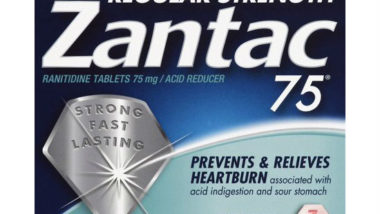 A number of scientific studies have found links between the long-term, frequent use of a PPI and stomach cancer. “PPI” stands for “proton pump inhibitor,” and is the scientific name for popular antacid medications that include Nexium and Prilosec.
A number of scientific studies have found links between the long-term, frequent use of a PPI and stomach cancer. “PPI” stands for “proton pump inhibitor,” and is the scientific name for popular antacid medications that include Nexium and Prilosec.
While these medicines pose few risks when used occasionally and/or over a short period of time, they can cause a wide range of serious, and even potentially fatal health conditions. In addition to PPI and stomach cancer links, researchers have found causal associations that include kidney damage, osteoporosis and more.
Proton Pump Inhibitors and How They Work
The development of PPIs began in the late 1970s with the discovery of the “proton pump” organelles that are part of cells lining the stomach (these are known as “parietal cells,” while the organelles are called “lysosomes”).
This is the mechanism that enables these cells secrete digestive acids, and represent the final step of the process. Prilosec (omeprazole) was the first PPI to reach the market in 1988.
PPIs such as Prilosec and Nexium deactivate the proton pump, preventing the secretion of acid. The drug is inactive until it comes into contact with stomach acid.
Once active, the drug binds to the proton pump, resulting in a permanent shutdown of the mechanism. A temporary reduction in the amount of stomach acid can provide relief from the symptoms of acid reflux (heartburn) and allow stomach ulcers to heal.
The PPI and Stomach Cancer
A certain amount of stomach acid is necessary for the absorption of nutrients as well the the maintenance of healthy gut flora. Overuse of PPIs can thus lead to numerous other health problems, as medical researchers have discovered over the past several years.
The PPI and stomach cancer connection was first noted in a study that appeared in the peer-reviewed medical journal Gut, first published in October 2017. Researchers from the University of Hong Kong found that for patients who took the medications for three years or longer, the PPI and stomach cancer risk rose between 100 and 700 percent.
Patients who faced the highest risk of PPI and stomach cancer were those infected with a bacteria known as H. pylori, which causes ulcers of the stomach lining.
Other PPI-Related Health Risks
In addition to the PPI and stomach cancer connection, medical research has found links between long-term/frequent use and the following health conditions:
- permanent kidney damage
- increased risk of stroke
- accelerated aging and dementia
- ascites (fluid buildup in the abdomen)
- osteoporosis
- Heart attacks and cardiovascular disease
What Did Drug Companies Know?
Current lawsuits against pharmaceutical companies
claim that the drug manufacturers were aware of the possible PPI and stomach cancer association as well as numerous other side effects, but deliberately withheld this information from the public.
Last summer, a three-judge panel in California extended the statute of limitations for a plaintiff alleging that she was unaware of the connection between her kidney disease and the PPIs she had been prescribed until she saw a television ad in 2016.
As of October 2018, there were over 2,300 lawsuits pending in federal courts. The complaints name AstraZeneca (Nexium), Proctor & Gamble (Prilosec), and Takeda Pharmaceuticals (Protonix) as defendants.
ATTORNEY ADVERTISING
Top Class Actions is a Proud Member of the American Bar Association
LEGAL INFORMATION IS NOT LEGAL ADVICE
Top Class Actions Legal Statement
©2008 – 2026 Top Class Actions® LLC
Various Trademarks held by their respective owners
This website is not intended for viewing or usage by European Union citizens.
E-mail any problems with this form to:
[email protected].
Oops! We could not locate your form.












